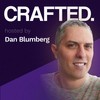
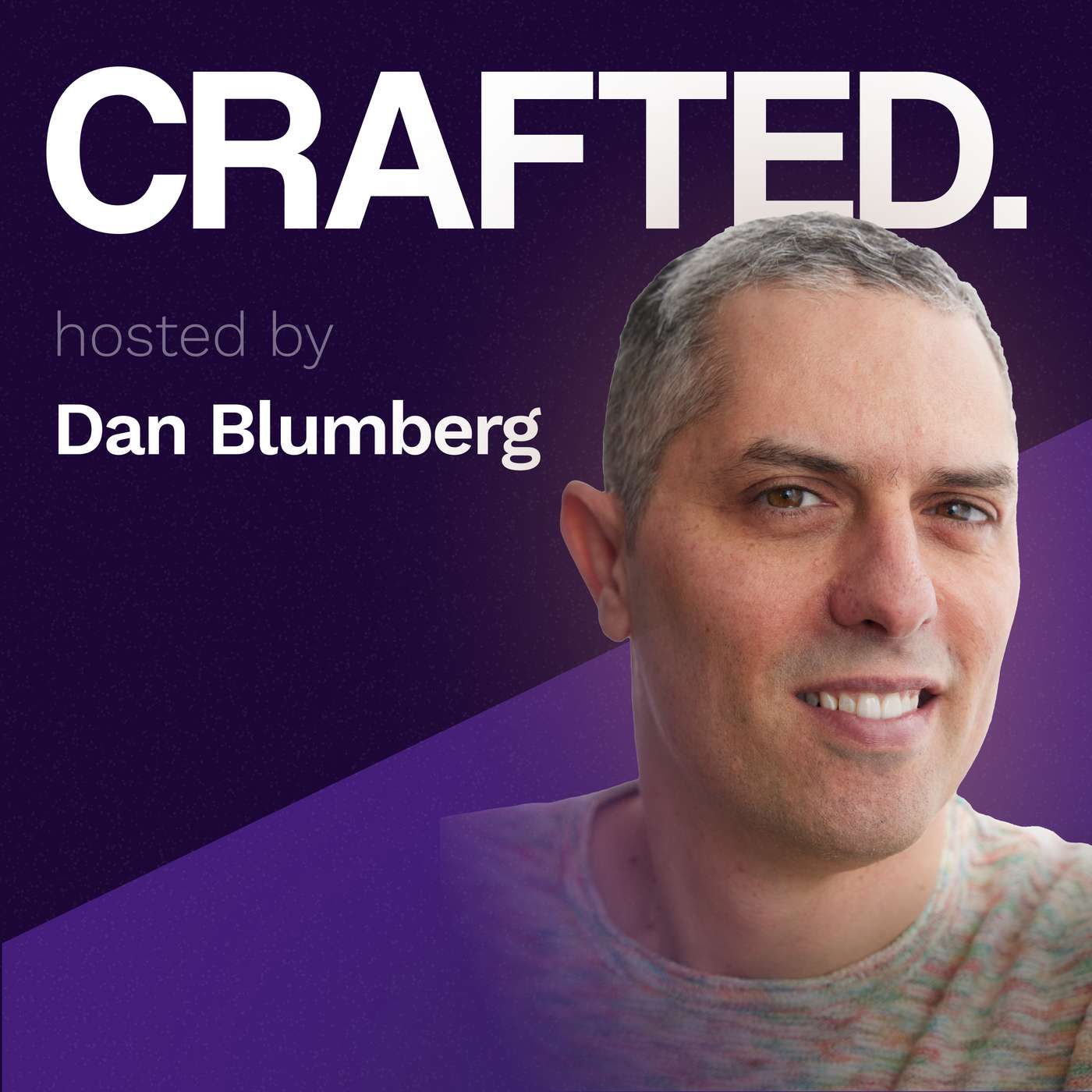
CRAFTED.
Dan Blumberg
Future around and find out as product leader Dan Blumberg speaks with founders, makers, and innovators about what comes next in tech, AI, and the craft of building great products. Honored three years in a row by The Webby Awards as a top tech podcast!
Sign up for the CRAFTED. newsletter 👉 crafted.fm
Sign up for the CRAFTED. newsletter 👉 crafted.fm
Episodes
Mentioned books
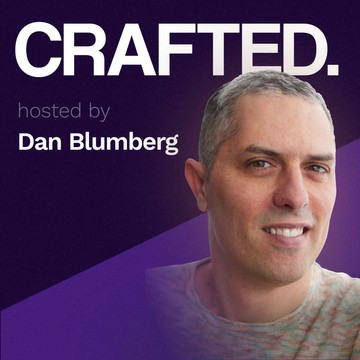
Oct 31, 2025 • 25min
Why This CTO Says AI Coding Agents Are “Insidious”, Overhyped, and Nowhere Near Replacing Human Engineers
AI coding assistants promise to write your code, speed up your sprint, and maybe even make engineers obsolete. But what if the people building with them every day see something very different?In this special Halloween edition of CRAFTED. — which also marks the show’s third anniversary! — a masked CTO shares what he can’t say publicly: that these tools are powerful, but insidious. In his view, coding assistants are great for auto-complete, but they can’t do what a human engineer does. He says they’re terrible at starting from scratch and will often suggest code that “works in vacuum”, but not in context. And because AI can write so much code, so quickly, it’s hard to catch errors. In short, he sees an increase in short term velocity, at the expense of increased defects and an increasing dependency on systems that are untrustworthy. I want to emphasize that this episode features the experience of one very experienced person. There are obviously others who disagree, who say AI coding agents are incredible, so long as they’re managed well. However, there are also an increasing number of people questioning the sustainability of coding agents — they're incredibly expensive to run — and also how good they are in the first place.For example Andrej Karpathy, the guy who literally coined the phrase "vibe coding" and was early at OpenAI and Tesla, just said publicly on Dwarkesh Podcast that the path to AI agents is going to be a lot slower than people in the industry think it will be. He said coding agents are "not that good at writing code that's never been written before" and that there is too much hype right now about where AI really is, with people in the industry, quote "trying to pretend like this is amazing, when it's not." And he said: "My Claude Code or Codex still feels like this elementary-grade student." Today's guest agrees with Karpathy on a lot of this. Our guest has worked at startups, scale-ups, and big tech companies you've definitely heard of and today he's at a very AI-forward company and using AI coding tools every day. Enjoy this special episode of CRAFTED.! ---And pretty please...!Share with a friend! Word of mouth is how podcasts grow!Subscribe to the newsletter at https://www.crafted.fmShare your feedback! I’m experimenting with new episode formats and would love your feedback on this and other episodes. DM me on LinkedIn or contact me email, via https://www.crafted.fmSponsor the show? I’m actively speaking to potential sponsors for 2026 episodes. Let’s talk!Get psyched!… There are some big updates to the show in 2026!---Key Quotes03:16 The myth of AI replacement: “The idea that AI can actually supplant a software engineer in their current role is basically nonsense.”06:29 Why AI struggles without human input: “If you remove the human engineer from the equation, there’s no place to start from. The AI does not do well when you’re starting from scratch because it doesn’t have the real-world context or the continuous learning required to make that system better.”12:21: The illusion of speed: “Coding assistants help you generate code very quickly. There’s an illusion that your velocity increases. What actually happens is you’re just shipping more bugs to production.”13:30 More code than humans can review: “AI generates so much code that no human can keep that context in their head and review it in a meaningful way. At some point you just have to trust — but who are you trusting? You’re trusting the AI, and the AI cannot be trusted.”14:02 AI & Junior Engineer Hiring: “The narrative that hiring trends have anything to do with AI is absurd. It’s not that AI is replacing junior engineers — it’s that companies are running lean and don’t have the bandwidth to train them.”15:42: Where the AI Bulls and Bears Differ: “Whereas we see flawed systems that aren't ready for primetime [...] they view this as ‘oh, that's, that's insignificant. They will get better almost immediately. It's not a big deal.’ But we've been repeating this cycle for years at this point.”19:50 Where AI Excels: “Where review and revise are part of the process already, that's a really good place for generative AI because you already have a human in the loop.”21:02: What builders need to unlearn “To the extent that people think these things are thinking or reasoning or on any path to AGI at all — they should discard that. These models don’t think. They’re very sophisticated pattern-matching machines, and that’s really it.”

Oct 17, 2025 • 37min
PopTech 2025: FetusGPT, De-extinction, Shade-as-a-Service, and More Crazy (but Real!) Ventures
Here’s a jaunty debrief from PopTech, a notoriously hard conference to describe, that always features obscenely talented entrepreneurs and changemakers.In this episode, Kwaku Aning, Sarah Rose Siskind, and I share some of the great stories and great vibes from this year's conference, including:FetusGPT, Sarah’s madcap experiment to train an AI on everything her soon-to-be-born baby is hearing from inside the wombWhy Colossal Biosciences is de-extincting the dire wolf and other “charismatic animals” (dodos and woolly mammoths are in the works) — and why de-extinction is an important goal that will help us solve lots of other problems along the way“Shade-as-a-Service”, a new idea from climate champion, farmer, and entrepreneur Eben Bayer, the founder of MyForest Foods (maker of MyBacon, the top-selling non-meat bacon). The idea is to launch giant parasols into the atmosphere to cool the Earth below.Why Tibet and Taiwan are so key to the tech industry (not to mention global stability); Tibetan PM-in-Exile Lobsang Sangay was a speaker.How to make progress on what matters most to you, featuring a prioritization exercise from Deep Future inventor and investor Pablos HolmanFeatured Voices:Sarah Rose Siskind, science and comedy writer and the founder of Hello SciCom, a STEM communications agencyKwaku Aning, professional connector, founder/principal of RetroFuturism ConsultingDan Blumberg (me!), host of CRAFTED. and the founder of Modern Product Minds. HMU if you want to build something great. I love building from zero to one.And Pretty Please... Share with a friend! Word of mouth is how podcasts grow!Subscribe to the newsletter at crafted.fmShare your feedback! I’m experimenting with new episode formats and would love your feedback on this and other episodes. Email me: dan@modernproductminds.com or DM me on LinkedInSponsor the show? I’m actively speaking to potential sponsors for 2026 episodes. Let's talk! Get psyched!… There are some big updates to the show in 2026!

Oct 3, 2025 • 9min
Optimism In Spite of Chaos: A Debrief from Climate Week
A quick debrief from Climate Week / UN General Assembly week, including: How seemingly normal everything felt, in spite of [...you know...] everythingAI will destroy the climate?AI will solve climate change? AI will kill us all? (If Anyone Builds It, Everyone Dies)A call for AI Red LinesThe UN takes action on AIA plea to “stay in the game” (even though it's hard)Joining me from New York are: Kwaku Aning, creates strategic partnerships that drive meaningful changeLendy Krantz, collaboration strategist, helps companies reimagine their operations in physical and virtual environmentsAnd you can join all three of us (hi, I’m your host Dan Blumberg!) from October 7-9th at PopTech in Washington DC. It’s a great conference and I’ll be interviewing many of the technologists and futurists who will be on stage for future episodes of the podcast. If you’d like a discount code, DM me on LinkedIn or email me: dan@modernproductminds.com

Sep 12, 2025 • 36min
Did anyone actually read that MIT AI study that made the market swoon? (I did!) Also: The latest on AI in schools and Melania’s robot paranoia
What’s up with “the MIT study” that claims 95% of all AI pilots fail? Did anyone actually read it beyond the headline? (Dan did—and he has thoughts.)Also: the good, the bad, and the quietly dystopian side of putting AI in kids’ classrooms.And… are robots really the thing Melania should be worrying about? That’s just some of what Kwaku Aning, return guest and founder of Retrofuturism, and I get into on this very lively, very bubbly, and very uncrafted edition of CRAFTED.More new episodes—and a major update to the show—are coming soon. Subscribe in your favorite podcast app and get the newsletter at crafted.fm---Come hang with us at PopTechCome hang with us and see live recordings of CRAFTED., at PopTech! PopTech is a “curator of what’s next” and this will be my third time at the conference. I keep going back because I get new ideas, new inspiration, and really get to know the attendees and speakers. This year’s talk’s include “A possibilist’s guide to the future”, “AI: In service to human(ity),” “Vibe coding for human rights” and more. To see the full list of talks and speakers, see PopTech.org and if you’ve never been before and would like a discount, DM me on LinkedIn or email me: dan@modernproductminds.com ---Referenced in this episode:MIT study on AI profits rattles tech investors (Axios)Full 26-page MIT study (Scribd)AI Is a Money Trap (Ed Zitron)The Fever Dream of Imminent Superintelligence Is Finally Breaking (Gary Marcus in the NYTimes)How Chatbots and AI Are Already Transforming Kids’ Classrooms (Bloomberg)Alpha School – the “AI-Powered Private School”Melania Trump Has a Warning for Humanity: ‘The Robots Are Here’ (NYTimes)---Like this episode?You’ll also like my conversation with Khan Academy’s Chief Product & Learning Officer on what happens when AI becomes your tutor—and what it means for the future of learning.
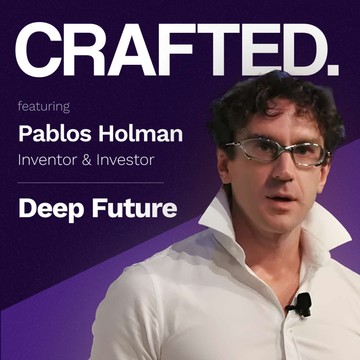
Jul 24, 2025 • 36min
The Deep Tech Innovations That Could Save the World | Pablos Holman (Inventor & Investor) [Rebroadcast]
Software is eating the world, right? We've all heard this phrase by now, but inventor and investor Pablos Holman has something important to add: “The world can't eat software.”That’s why Pablos focuses on “deep tech”, i.e. how to invent new solutions to real world problems like energy, water, waste, construction, and sanitation. Pablos says we’re still mostly using version 1.0 technology for these fundamental systems, but recent advances, including AI and the ability to prototype and test in software, are enabling incredible innovation in hardware.Pablos has worked with Jeff Bezos, Bill Gates, and more. He's kind of a mad scientist and in this episode we’ll discuss things that sound like science fiction, but that Pablos says are coming soon, such as solar panels in outer space that can beam clean energy down to earth, autonomous cargo ships blown by the wind across the ocean, and tiny nuclear reactors buried a mile underground that power the world above. At Deep Future, Pablos is on a mission to solve the world's biggest problems, and he's hoping more people will make the jump that he did from software to hardware and into deep tech, because, as he says, “ all the people who've been building software their entire career, those are the ones who are going to save the world.”—Chapters02:25 Deep tech and why it’s so important05:56 How Pablos became an inventor07:44 Getting Blue Origin off the ground11:35 Running an invention lab at Intellectual Ventures13:40 Why solar panels in space will soon power Earth16:46 Why all problems are energy problems21:33 Better nuclear reactors are coming28:25 How rapid iteration in software enables better hardware31:35 An appeal to software people to get into deep tech — and save the world—Links:Deep Future book, podcast, and firm: deepfuture.techPopTech conference: poptech.org (if you're new to PopTech and would like a discount, email me or DM me on LinkedIn)Sign up for the CRAFTED. newsletter: crafted.fmLearn more about how Modern Product Minds can help you build the future: modernproductminds.comEmail me: dan@modernproductminds.com

Jun 5, 2025 • 35min
Is AI a New Form of Colonialism? | Empire of AI Author Karen Hao (Rebroadcast)
Karen Hao, an AI journalist and author of Empire of AI, dives into the complexities of artificial intelligence from a global perspective. She argues that larger AI models come with enormous environmental costs and advocates for smaller, more efficient alternatives. Hao discusses the ongoing protests in Chile against data center expansions and highlights Indigenous efforts in New Zealand to use AI for cultural preservation. She also examines the issues of linguistic inequity in AI, stressing the importance of community empowerment and self-determination in technology.
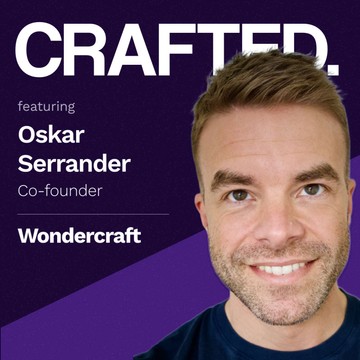
27 snips
May 22, 2025 • 22min
AI Voice Generation Is Crazy Good! Rapid Prototyping Audio Creative With Wondercraft Co-founder Oskar Serrander
Oskar Serrander, co-founder of Wondercraft, dives into the revolutionary impact of AI on audio content creation. He reveals how their platform lets brands and creators prototype high-quality audio in seconds. The conversation touches on the importance of originality in an age of sameness and how audio remains an underutilized medium. Oskar shares insights on the future of synthetic voices, the playful creation of a dog-friendly airline ad, and the balance between innovation and regulation in the evolving landscape of audio storytelling.
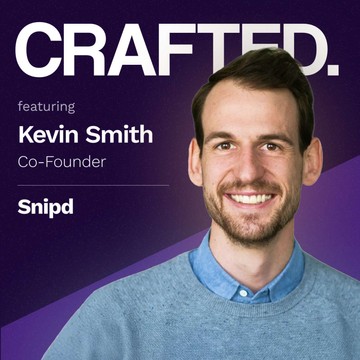
254 snips
May 8, 2025 • 25min
Building an AI-native Podcast App to Turn Listening Into Learning | Kevin Smith (Co-founder, Snipd)
Kevin Smith, Co-founder of Snipd, is redefining the podcast experience by transforming it into a powerful learning tool. He discusses how Snipd allows users to save key moments, or 'snips,' enhancing knowledge retention. Kevin shares his journey of adapting to generative AI in app development, emphasizing a shift from traditional coding to a more collaborative mindset. He also hints at a future where podcasts become interactive companions, with listeners possibly engaging in conversations with AI-hosted shows.
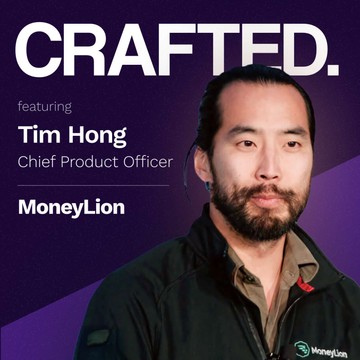
8 snips
Apr 24, 2025 • 31min
Inspiring the Next Generation to Build Great Money Habits (Whatever Those Are) | Tim Hong (CPO of MoneyLion)
Tim Hong, Chief Product Officer at MoneyLion, discusses creating engaging money habits for today's youth. He emphasizes that the challenge isn't just overcoming bad habits but establishing good ones from scratch. Tim shares insights on using AI for personalized financial guidance and how many financial apps feel cumbersome. He explains the concept of 'self-driving money' and questions if users truly want to give up control. Tune in for an engaging conversation about making finance relatable and inspiring for a new generation.

Apr 17, 2025 • 11min
3 years in a row! The Webby Awards say we're a top tech podcast! Here are some show highlights...
This podcast features highlights from a top tech show celebrating its third Webby Awards win. Experts discuss how AI is revolutionizing software development and the importance of open-source in this transformation. The conversation includes insights on creative AI, startup efficiency, and unique approaches in drug discovery and neurotechnology. Thought leaders emphasize blending empathy and philosophy with data-driven methods in tech to create more meaningful user experiences. It's an engaging exploration of innovation and the future.


